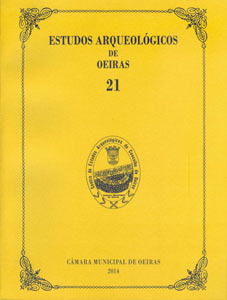Palambrio: una palabra “lusitana” actual derivada de la raíz *pala-, “piedra”
Palavras-chave:
Pala, Lusitanian i.e. language, Lusitanos, Palaeohispanic Linguistic, Ethno-archaeologyResumo
Analysis of the word “pala” and derivative voices kept alive in Spanish and in Galaico-Portuguese language and in the place names of the Galician-Lusitanian region and of the provinces of León, Zamora and Salamanca (Spain). Its meaning as “rock” is confirmed, as its origin in the i.e. Lusitanian language. It thus provides an interesting example of survivals of longue durée in words of prehistoric origin preserved in the western lands of Iberia.
Downloads
Publicado
2014-09-21
Como Citar
Almagro-Gorbea, M. (2014). Palambrio: una palabra “lusitana” actual derivada de la raíz *pala-, “piedra”. Estudos Arqueológicos De Oeiras, 21, 461–474. Obtido de https://eao.oeiras.pt/index.php/DOC/article/view/278
Edição
Secção
Artigos
Licença
Os artigos publicados são da exclusiva responsabilidade dos Autores.
É expressamente proibida a reprodução de quaisquer imagens sobre as quais
existam direitos de autor sem o prévio consentimento dos signatários dos artigos
respectivos.




